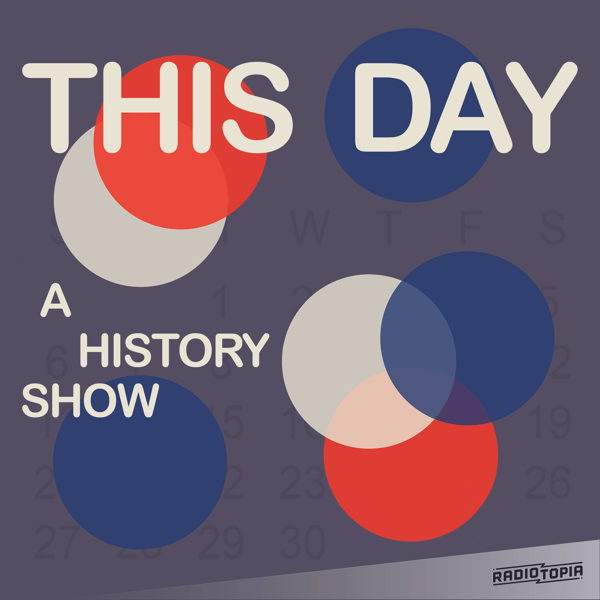Hoover Feeds Russia (1922)
This Day in Esoteric Political History
Jody Avirgan & Radiotopia
4.6 • 982 Ratings
🗓️ 21 August 2022
⏱️ 15 minutes
🧾️ Download transcript
Summary
It’s August 19th. This day in 1922, a massive food relief program is underway, with tons of American supplies headed for Russia.
Jody, Kellie, and Niki discuss why the United States was committed to aiding the Russian famine, and how Herbert Hoover built his reputation as a food administrator in the wake of WWI.
Sign up for our newsletter! Find out more at thisdaypod.com
And don’t forget about Oprahdemics, hosted by Kellie, out now from Radiotopia.
This Day In Esoteric Political History is a proud member of Radiotopia from PRX.
Your support helps foster independent, artist-owned podcasts and award-winning stories.
If you want to support the show directly, you can do so on our website: ThisDayPod.com
Get in touch if you have any ideas for future topics, or just want to say hello. Our website is thisdaypod.com Follow us on social @thisdaypod
Our team: Jacob Feldman, Researcher/Producer; Brittani Brown, Producer; Khawla Nakua, Transcripts; music by Teen Daze and Blue Dot Sessions; Audrey Mardavich is our Executive Producer at Radiotopia
Transcript
Click on a timestamp to play from that location
| 0:00.0 | Hello and welcome to this day in esoteric political history from Radiotopia. |
| 0:07.0 | My name is Jody Avregan. |
| 0:10.0 | This day, August 21st, 1921, the largest relief effort in the world up to that point is mounted. |
| 0:19.0 | After 10 days of negotiation to plan the effort in early September, late summer, dozens of American ships start |
| 0:26.2 | arriving in Russian ports, carrying 700 tons of food, mostly corn, which was then used to feed |
| 0:32.3 | children in cities throughout Russia. |
| 0:34.1 | This program was starting now. It would run for a while. By the next summer, |
| 0:38.6 | summer of 1922, the American Food Program had fanned out across Russia was feeding some 11 million Russians a day. |
| 0:46.0 | This food program was largely the work of Herbert Hoover, who in the time since the end of World War I had made food assistance one of his major priorities. |
| 0:55.3 | He saw it both as a noble humanitarian effort but also a political cudgel. |
| 1:01.9 | Food will win the war was his slogan. So let's talk about the US-Russia food aid nexus and also this really interesting part of Hoover's career that I didn't really know too much about it. I don't think I really |
| 1:13.5 | thought of him as a food guy. Do we come a foodie as a result of this? I don't know. |
| 1:17.1 | But here to do that as always are, Nicole Hammer of Vanderbilt and Kelly |
| 1:22.3 | Carter Jackson of Wellesley. Hello there. |
| 1:24.5 | Hello Jody. Hey there. Do we want to start kind of bigger picture with like Hoover |
| 1:29.7 | and his role in food aid particularly coming out of World War I, it really was quite a remarkable effort. |
| 1:38.3 | Hoover really was known in this era as a kind of if not philanthropist than like a man who was out there |
| 1:47.5 | healing the world in some ways that he was bringing food |
| 1:55.0 | to war-torn places, places like Belgium, making sure that Americans economized |
| 1:58.0 | so that there would be food available |
| 2:00.0 | to help out US allies during World War I to make sure that people who didn't have |
| 2:07.1 | enough had enough, which was really his legacy going into the 1920s. |
... |
Please login to see the full transcript.
Disclaimer: The podcast and artwork embedded on this page are from Jody Avirgan & Radiotopia, and are the property of its owner and not affiliated with or endorsed by Tapesearch.
Generated transcripts are the property of Jody Avirgan & Radiotopia and are distributed freely under the Fair Use doctrine. Transcripts generated by Tapesearch are not guaranteed to be accurate.
Copyright © Tapesearch 2025.

